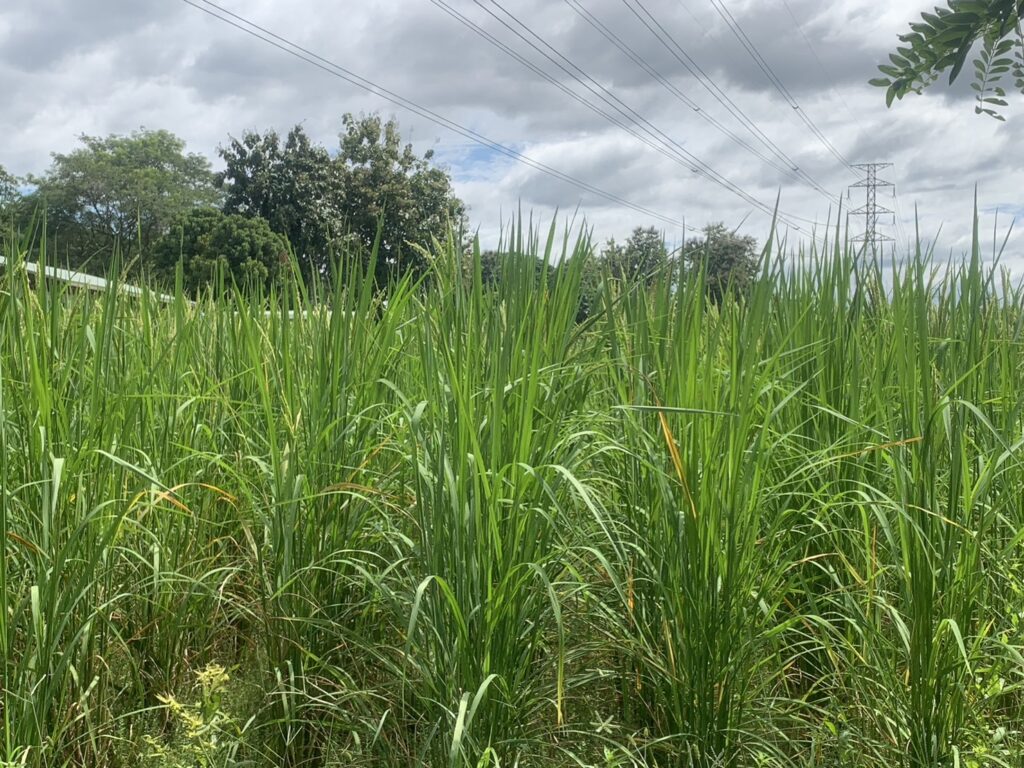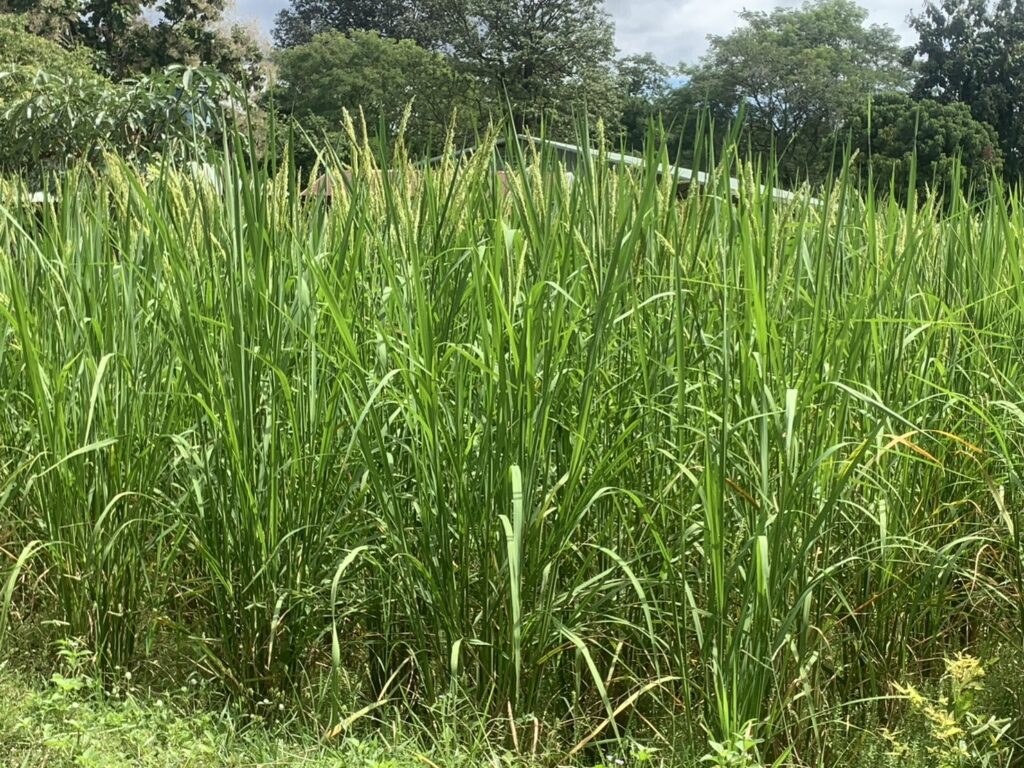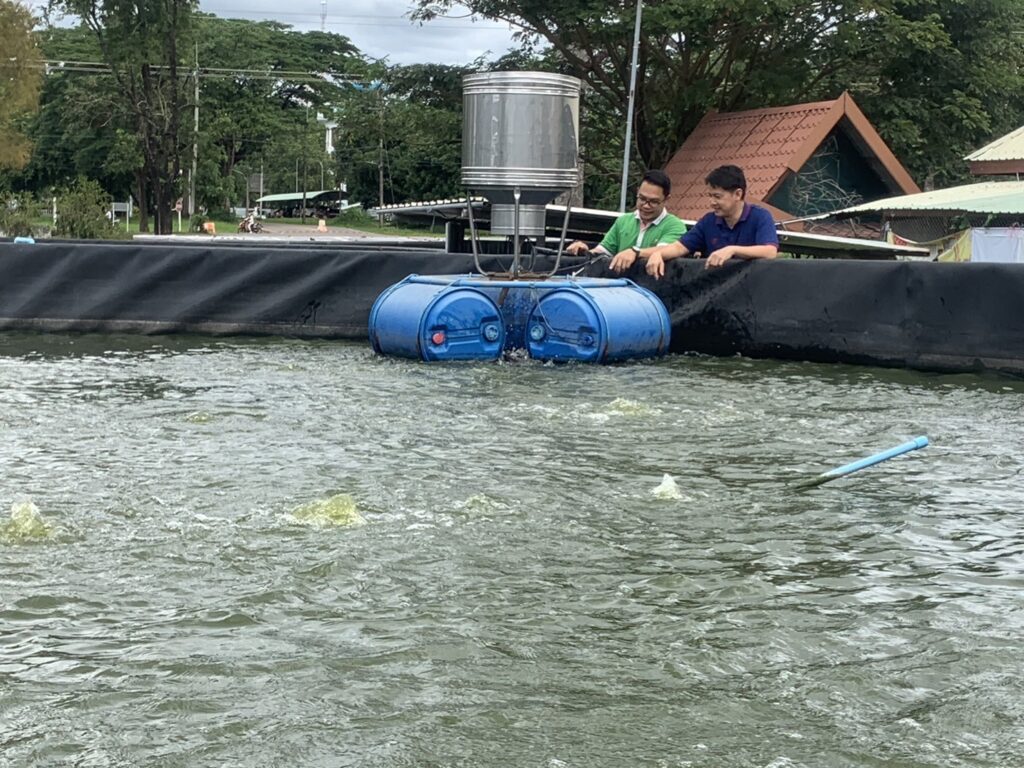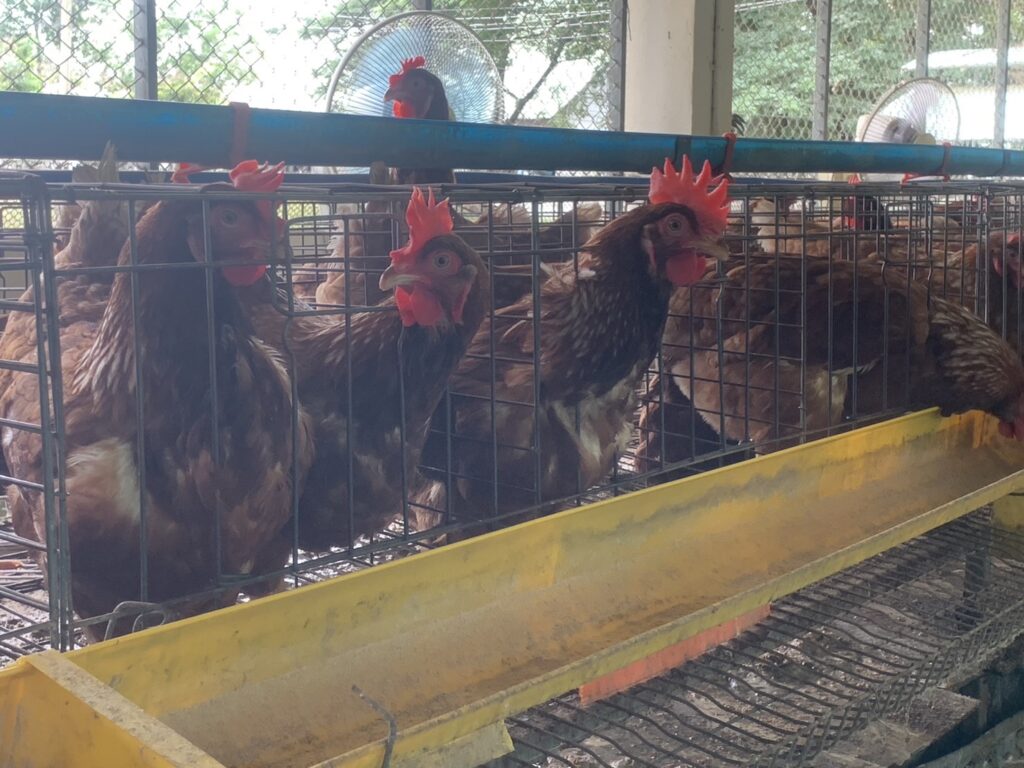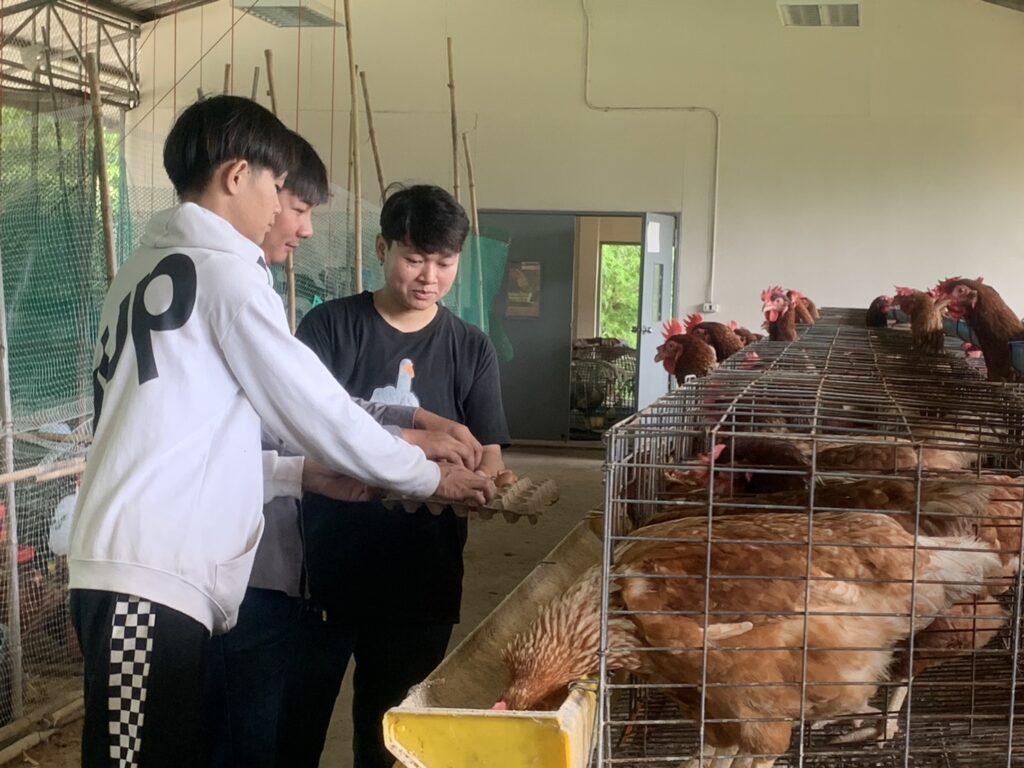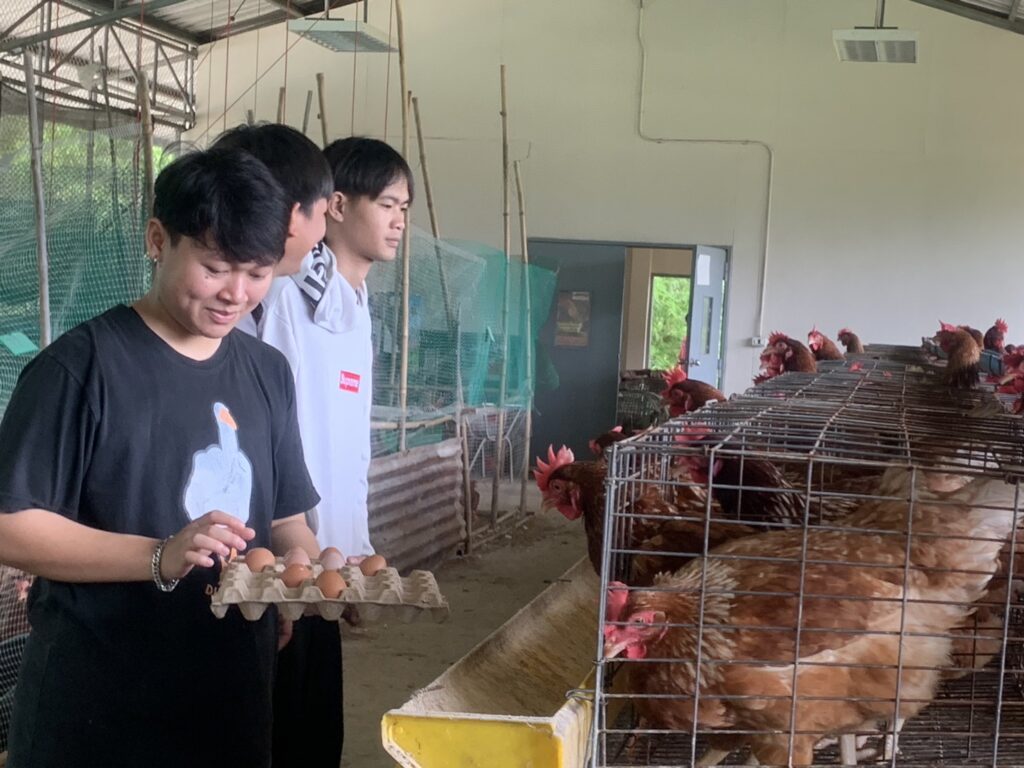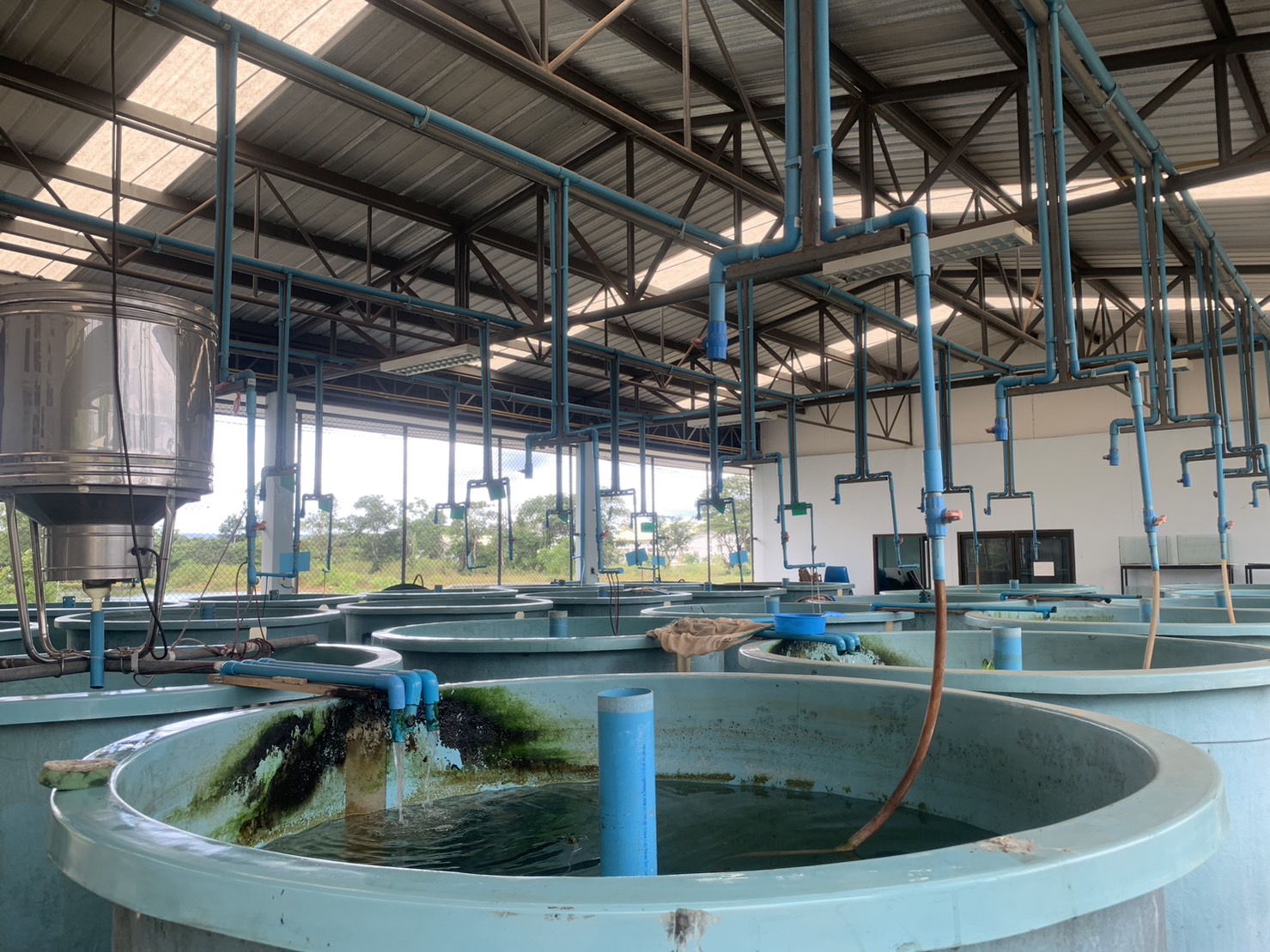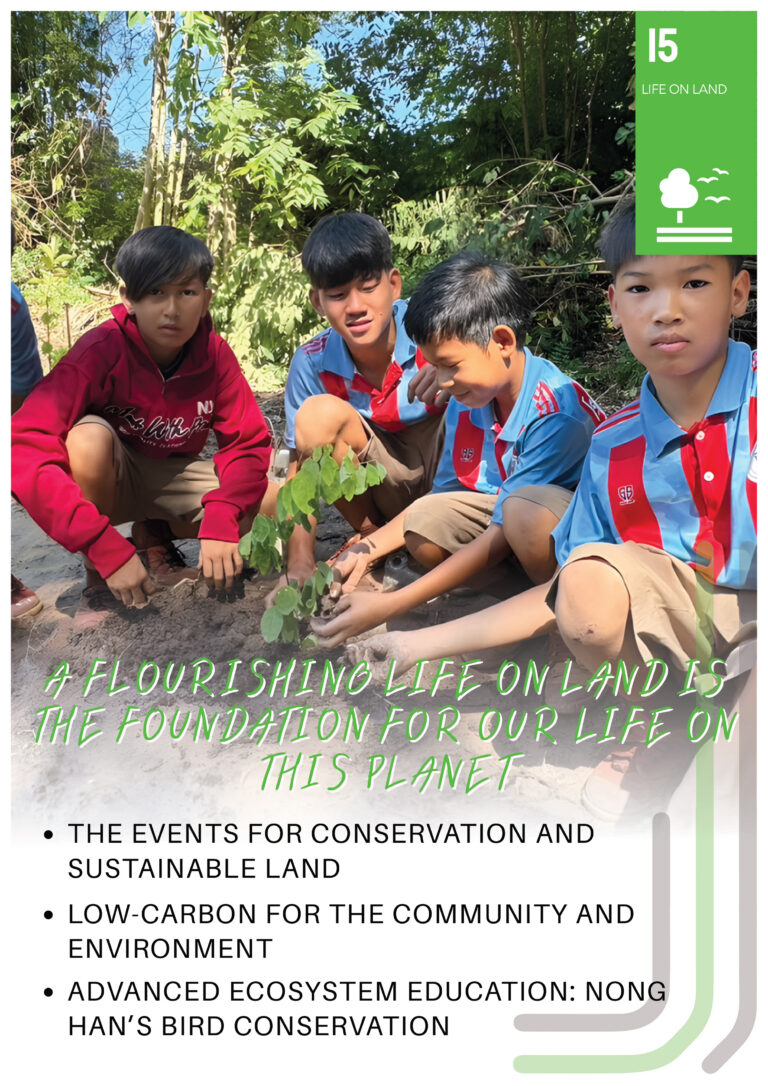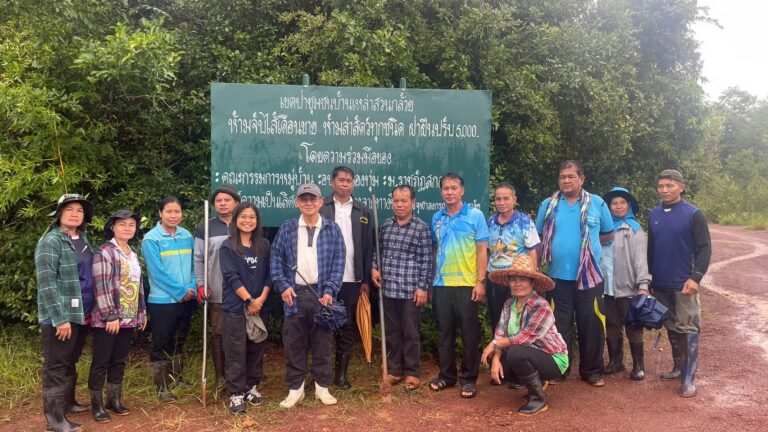Sakon Nakhon Rajabhat University has a policy on food, consumption, and cultivation for quality, safety, and sustainable development. It sets guidelines for business operators within the university to be responsible for sourcing quality food and ingredients for food preparation. Food safety practices include separating waste into at least two categories: general waste and recyclable waste. The use and provision of foam and plastic food containers, plastic straws, and plastic bags are prohibited. Thinner earthenware cups with less than 36 microns thickness are encouraged, and the price of beverages is reduced for customers who bring reusable glass containers. The university has also issued regulations on the sale of food and beverages within the campus and established learning centers for agricultural management. These centers offer various activities such as organic vegetable gardens, fish farming using biofloc systems, animal grazing pastures, and egg-laying chicken houses. The purpose is to provide a learning resource for students and external individuals interested in learning about agricultural management technology, safe food farming, and sustainable agriculture practices.

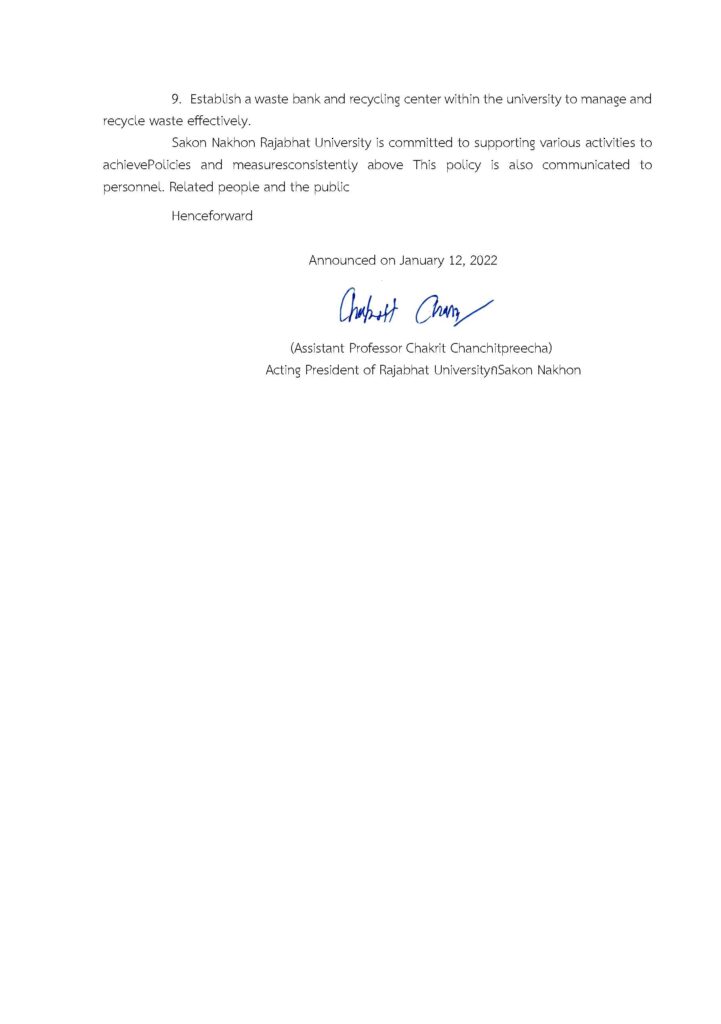

According to the university’s strategic objectives for sustainable social and personal development, the Department of Plant Science has set its goals on the foundation of “people” as the starting point of development. This begins with the development of students in the field of plant science, who are considered the first priority (followed by farmers as the next priority). They are seen as a key factor in the agricultural structure and are members of the agricultural community, which provides opportunities for them to enhance their agricultural knowledge beyond the traditional scope. The Department of Plant Science has therefore implemented an approach based on the “sufficiency economy philosophy” with the concept of “step by step” thinking. They have named this initiative the “Indie Vegetables Botany Garden” and have been conducting activities since 2014, which have grown into the “Indie Vegetables Garden with Uncle, Aunt, and Siblings” as it not only involves students and faculty members but also includes alumni from the Indie Vegetables Botany Garden and local farmers. They have formed a network for learning and collaborative development up until the present time.


